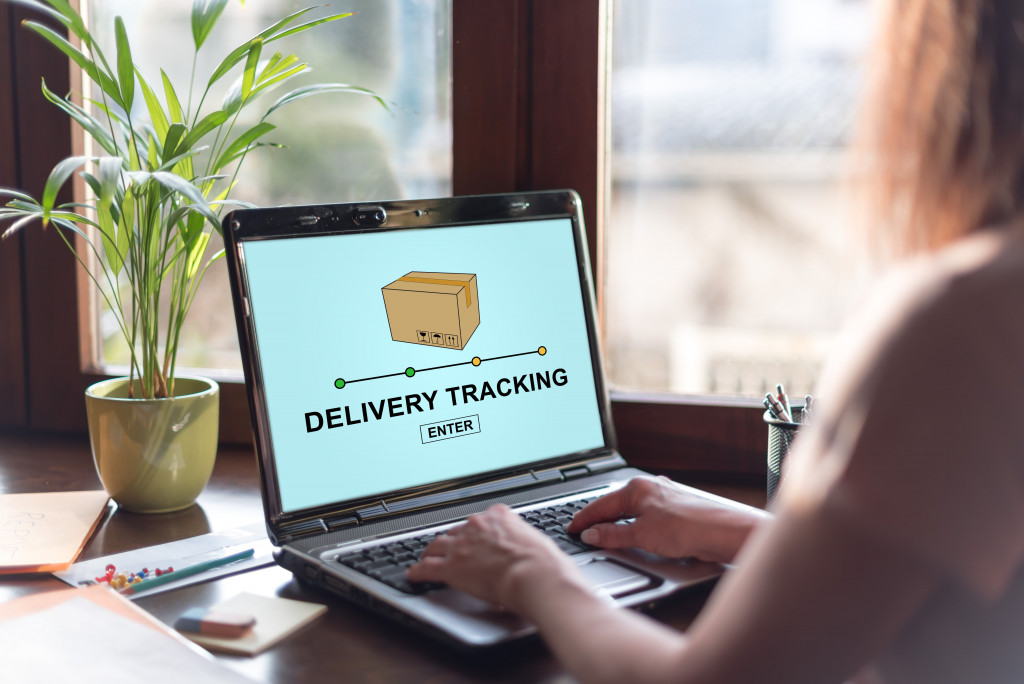Businesses are always looking for ways to manage their business more efficiently, and GPS technology is one way that is gaining in popularity. The use of GPS technology is changing the way businesses manage their operations. It allows tracking and optimizing processes, streamlining data flow, and managing contacts and employee records. In reality, this enhanced operation efficiency reduces expenses and allows the company to expand rapidly.
According to the research, almost 90% of all SMBs rely on digital tools for communication, internal management, and logistics, and more than 40% use them for sales management. At the same time, less than a third of businesses have a clear digital strategy, and an even smaller proportion invest in digital transformation. Companies must understand how to use GPS tracking devices and software to their advantage to stay ahead of the competition.
Here are five ways how GPS is changing different business industries:
Trucking
The trucking industry uses GPS tracking to manage shipments and improve delivery times. Without this technology, trucking companies would have to rely on paper maps and manual logging to keep track of their vehicles. This is not only time-consuming, but it is also prone to error. It can also lead to lost shipments, missed appointments, and frustrated customers.
GPS tracking provides real-time data that can be used to plan more efficient routes and optimize delivery schedules. This information is also shared with customers so they can track their orders. This helps to ensure that shipments arrive on time and that customers are happy.
Agriculture
The most common problem in agriculture is the need for accurate mapping. In the past, farmers would have to rely on paper maps or go out into their fields to take measurements. This was time-consuming and often resulted in inaccurate data. GPS technology is used in agriculture to help farmers map their land, plan their planting schedules and track their crops.
They can also use GPS to plan their planting and harvesting schedules around the weather. This helps ensure crops are not damaged by frost or heat waves. Also, farmers can use GPS devices to pinpoint the location of their crops and irrigation systems.
This information is used to plan irrigation schedules and determine when to fertilize or spray for pests. GPS can also help farmers track the progress of their crops, so they can make necessary adjustments if needed. This allows farmers to increase their yields and decrease their costs.

Retail
The retail industry uses GPS to manage store inventory and ensure that products are in stock. This is especially important for businesses that have multiple locations. In the past, retail businesses would have to physically go to each store to check inventory levels. This was time-consuming and often resulted in lost sales.
GPS tracking devices are placed on products so that businesses can track their location in real-time. This information is used to generate reports that show which products are selling well and which ones need to be restocked. This helps businesses keep their inventory levels up and reduces the chance of lost sales.
It also helps businesses plan their advertising and promotions around the products that sell well. This helps to ensure that customers can find the products they want and are happy with their purchases.
Auto-loans
One of the most important things for a lender is to know where their collateral is. In the past, lenders would have to rely on paper records and phone calls to track down their collateral. This was time-consuming and often resulted in lenders losing money.
GPS tracking devices are now being used by lenders to track their collateral in real-time. This information is used to generate reports that show the location of the collateral at all times. This helps lenders to recover their collateral if it is ever lost or stolen.
They also use a vehicle-starter interrupt disable system (SID) to prevent borrowers from starting their vehicle if they are behind on their payments. This prevents the car from being started. The device can be configured to send a signal indefinitely for a certain period. This helps to ensure that lenders can recover their collateral and avoid losses.
Medical
The medical industry uses GPS to track patients, staff, and equipment. This helps to ensure that patients receive the best possible care and that staff is where they are supposed to be.
GPS tracking devices are used to track the location of patients, so their condition can be monitored in real-time. This information is also used to generate reports showing which patients need care and which are doing well. This helps to ensure that staff is where they are supposed to be and that they are providing the best possible care. It also helps to reduce the chance of errors and improve patient safety.
GPS tracking devices are placed on medical equipment to monitor its location in real-time. This helps to ensure that equipment is where it is supposed to be and that it is being used properly. This helps to ensure that equipment is being used properly and that it is available when it is needed.
GPS changes how business works
Overall, GPS technology is changing the way businesses operate. It is helping businesses to save time and money and increase their efficiency. It is also being used to protect assets and prevent losses. If you want to stay ahead of the competition, it is important to implement GPS into your business. As more firms adopt GPS, we expect to see even more changes in their operations.

